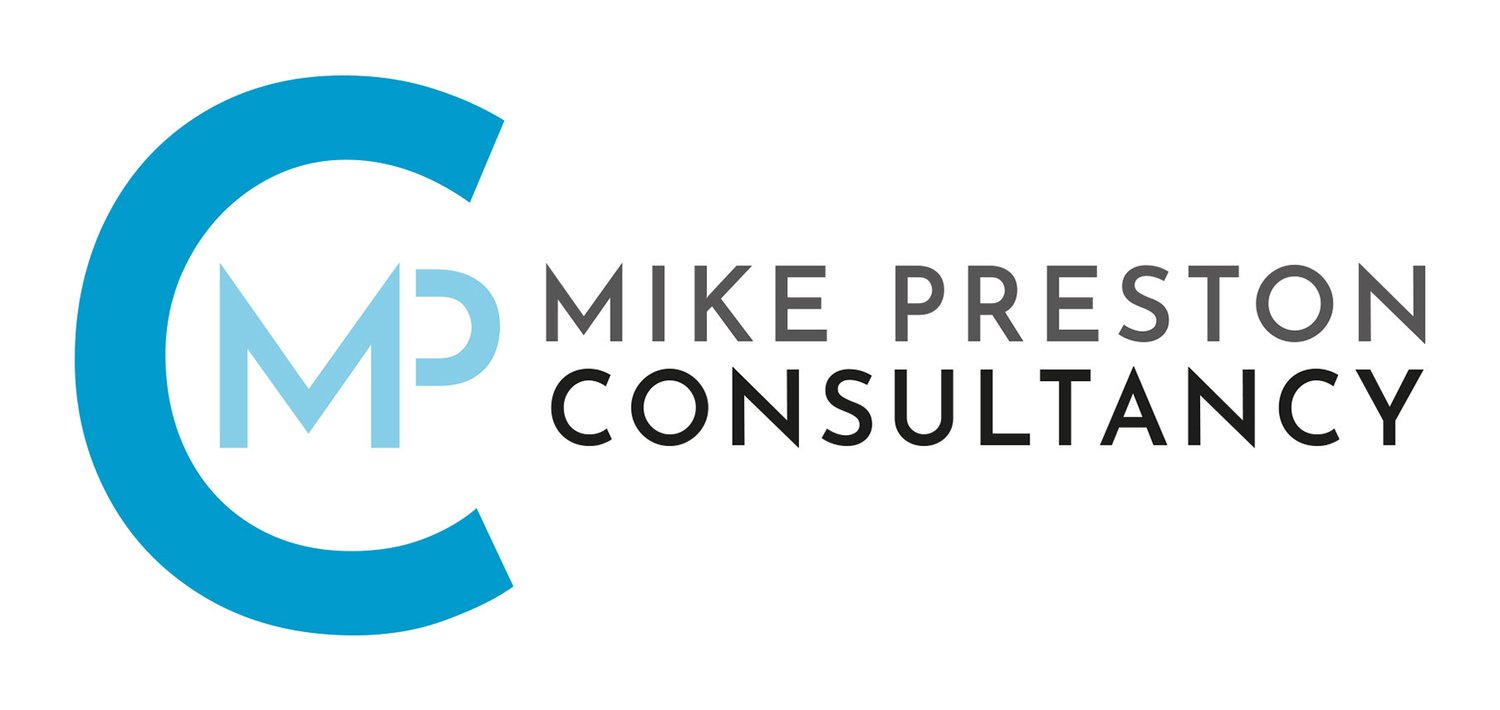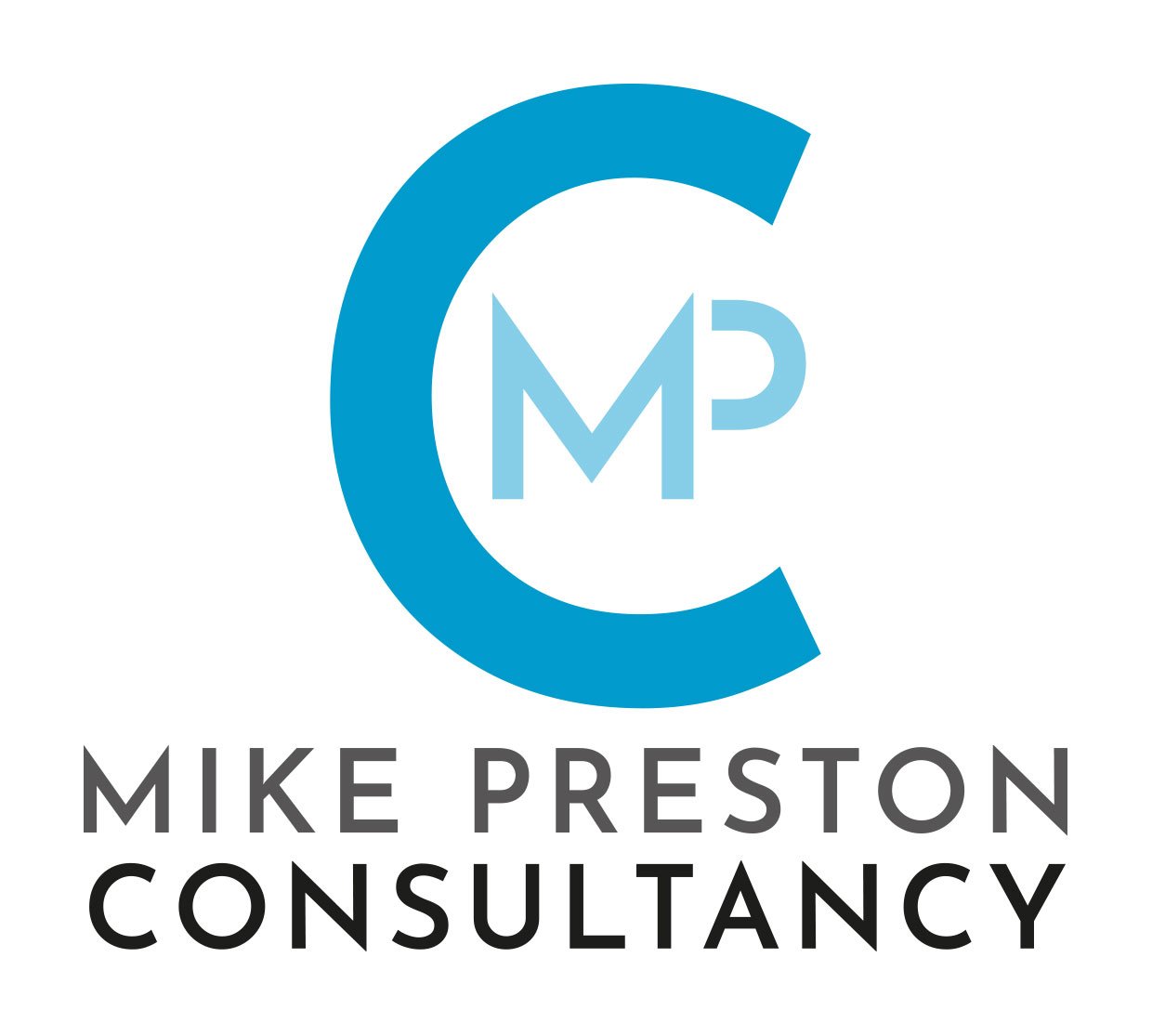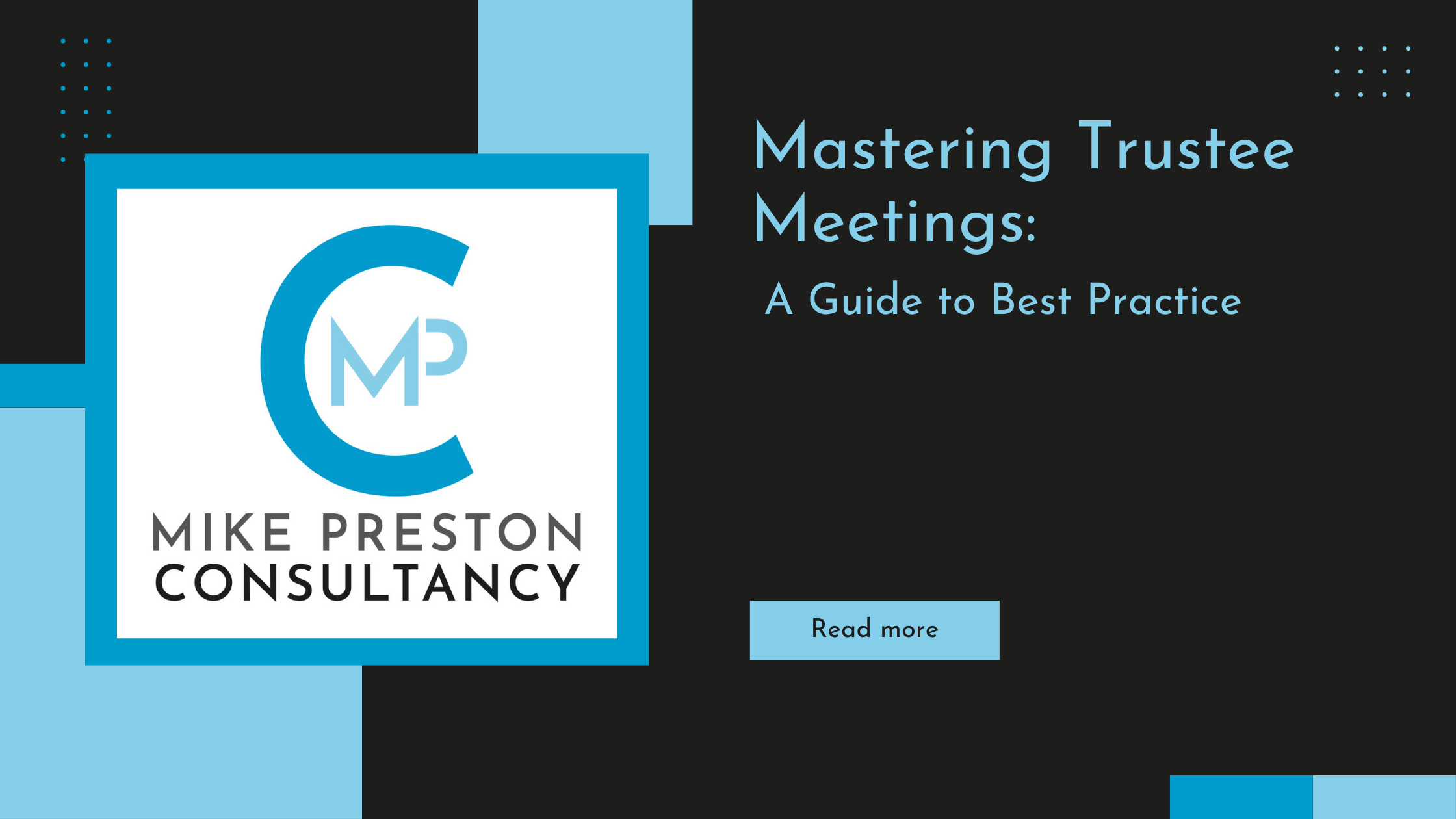Mastering Trustee Meetings: A Guide to Best Practice
Effective trustee meetings are the engine room of a well-governed charity. They are where strategic decisions are made, performance is scrutinised, and the organization's future direction is set. However, poorly run meetings can be a drain on time and energy, leaving trustees and staff frustrated and potentially compromising the charity's mission.
At Mike Preston Consultancy, we understand the vital role of strong governance. This blog post outlines key best practices for trustee meetings, covering everything from crucial preparation to productive debate and essential follow-up.
Preparation is Paramount: By Trustees and Staff
Productive meetings don't happen by accident; they are the result of diligent preparation from all sides.
For Trustees:
Read the Papers Thoroughly: This is non-negotiable. Arrive at the meeting having read and understood all the provided documents. Highlight key points, formulate questions, and identify areas requiring clarification or further discussion.
Understand Your Role and Responsibilities: Be clear on your duties as a trustee and how they relate to the agenda items.
Know the Charity's Business: Stay informed about the charity's activities, performance, and the external environment in which it operates.
Declare Any Conflicts of Interest: Be prepared to declare any potential conflicts of interest at the outset of the meeting, in line with the charity's policy.
Communicate in Advance (if needed): If you have significant questions or concerns about a paper, consider raising them with the Chair or relevant staff member before the meeting. This can help streamline discussions.
For Staff (Supporting the Board):
Prepare and Distribute Board Papers Promptly: Papers should be clear, concise, and distributed with sufficient time for trustees to read them properly (ideally at least a week in advance).
Ensure Papers are Relevant and Focused: Each paper should clearly state its purpose (e.g., for decision, information, or discussion) and provide all necessary background information without being overly long.
Work with the Chair on the Agenda: Develop a clear and realistic agenda that prioritises key items and allocates appropriate time for each.
Provide Necessary Context: Ensure trustees have access to relevant policies, previous minutes, or other documents that provide context for agenda items.
Anticipate Questions: Consider what questions trustees might have and ensure the relevant information is available.
Crafting Effective Board Papers
Board papers are the foundation of informed discussion and decision-making. They should be:
Clear and Concise: Avoid jargon and keep language straightforward.
Well-Structured: Use headings, bullet points, and summaries to make information easily digestible.
Action-Oriented: Clearly state what is required from trustees for each item (e.g., "For Decision," "For Discussion," "For Information").
Supported by Data: Include relevant data and evidence to support recommendations or provide context.
Consistent in Format: Use a consistent layout and style for all board papers.
Designing a Purposeful Agenda
The agenda sets the flow and focus of the meeting. A good agenda will:
Start with Essential Formalities: Include items like apologies for absence, declarations of interest, and approval of previous minutes.
Prioritise Key Strategic Items: Ensure sufficient time is allocated for important discussions and decisions related to the charity's strategy and performance.
Include Standing Items: Incorporate regular items such as finance reports, safeguarding updates, and risk reviews.
Allocate Realistic Timings: Assign a realistic amount of time to each agenda item to help keep the meeting on track.
Indicate Lead / Presenter: Clearly show who is responsible for presenting or leading the discussion on each item.
Allow for Any Other Business (AOB) - with caution: While AOB can be useful for brief updates, significant new items should ideally be submitted in advance for inclusion on the formal agenda.
Behaviour in Meetings: Fostering Constructive Dialogue
The dynamic within the meeting significantly impacts its effectiveness.
Maintain Respect and Courtesy: Treat all attendees with respect, even when opinions differ.
Listen Actively: Pay attention to what others are saying and seek to understand their perspectives.
Contribute Constructively: Share your insights and expertise, focusing on the best interests of the charity.
Stay Focused on the Agenda: Avoid getting sidetracked by irrelevant discussions.
Manage Time Effectively: Be mindful of the allocated timings for each agenda item.
Handling Conflict and Debating Effectively
Disagreement can be healthy and lead to better decisions, but it needs to be managed constructively.
Welcome Diverse Perspectives: Encourage a range of viewpoints and healthy challenge.
Focus on Issues, Not Personalities: Debate the matter at hand, avoiding personal attacks or criticism.
Support Arguments with Evidence: Base your contributions on the information provided in the board papers and your knowledge of the charity.
Listen to Understand: Seek to comprehend the reasons behind differing opinions.
Find Common Ground: Look for areas of agreement and work towards a consensus where possible.
Respect the Chair's Role: The Chair is responsible for managing the discussion and ensuring everyone has an opportunity to speak.
Follow Agreed Processes: Adhere to any established procedures for decision-making when there are differing views.
Roles in the Meeting
While all trustees share collective responsibility, specific roles are crucial for effective meetings:
The Chair: Facilitates the meeting, ensures the agenda is followed, manages discussion, encourages participation, and works towards clear decisions. They also often act as a link between the board and the CEO.
The Vice-Chair (if applicable): Supports the Chair and deputises in their absence.
The Treasurer: Presents financial reports and helps the board understand the charity's financial position.
The Secretary (or Minute Taker): Ensures accurate minutes are taken, capturing key discussions, decisions, and actions.
Trustees: Actively participate in discussions, ask clarifying questions, contribute their expertise, and make decisions in the best interests of the charity.
CEO / Senior Staff: Provide updates, present papers, answer questions, and offer insights from an operational perspective.
Post-Meeting Follow-Up: Ensuring Actions are Taken
The work doesn't end when the meeting closes. Effective follow-up is vital.
Accurate and Timely Minutes: Minutes should be prepared promptly and circulated to all trustees for review and approval at the next meeting. They should record decisions made, actions agreed, and who is responsible for each action, with deadlines.
Circulate Action Points: A separate list of action points, including the responsible person and deadline, should be circulated shortly after the meeting.
Track Progress on Actions: The Chair and/or relevant staff should monitor progress on action points and provide updates at subsequent meetings.
Share Information as Agreed: Any information or documents that the board agreed to share should be distributed promptly.
Communicate Outcomes: Communicate key decisions and outcomes of the meeting to relevant staff, volunteers, and stakeholders as appropriate.
By implementing these best practices, your trustee meetings can become more efficient, engaging, and ultimately, more effective in guiding your charity towards achieving its mission.
Ready to Enhance Your Trustee Meetings?
Visit the Mike Preston Consultancy Resources Hub to download templates and resources designed to support effective governance, including agenda templates, minute templates, and guidance on trustee roles and responsibilities.
mikepreston-consultancy.co.uk/resources-hub/p/templateboardreportandagenda


